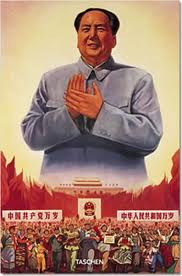[...]
7. In some other thread, I'd be happy to debate the many ways to turn students in the right direction, with the right attitudes, but for now, government out of education is the start, and that means vouchers and choice.
As for the economy, here is the rule: you can have equality or you can have prosperity....but not both.
No need to debate at all, check the link on Finland above for the easy answer. Yesterday, my wife got an email from a parent telling her she wasn't satisfied with little Joanie's grades. Perfect example of America and even your misdirected argument. Had little Joanie done her work, this would not be an issue. Has nothing to do with anything except a culture in which it is always someone else's fault. And when caught the excuses fly. You simply don't want to face reality, and look instead for simple foes to pin blame on.
And we can have both but we would need to define equality. Our greatest prosperity was when FDR, Truman, Eisenhower, LBJ worked at it. Certain European nations approach this utopia, they don't give up as easily as we do today. Another example in the change in our nation from 'can do' to whining.
Lessons From Finland: The Way to Education Excellence | Common Dreams
"...we would need to define equality."
Let me help you here:
. The meaning of equality.
1.
The Declaration of Independence memorializes the proposition that all men are created equal. At the time, the ambiguity of the phrase allowed even slave holders to find it informing.
2. But, clearly, the document was understood at the time
not to promise equality of condition- even to white male Americans! Equality, as an abstract, was modified by the American idea of reward according to achievement, and a reverence for private property.
3. But the concept has been modified with the growth of
modern liberalism, and the egalitarian impulse that fuels it. Here we witness
the constant expansion into areas in which equality of sorts is seen as desirable and/or mandatory. The intuitive de Tocqueville actually remarked that Americans loved equality more than freedom!
a. The principle of equality prepared men for a government that covers the surface of society with a network of small complicated rules, minute and uniform, through which the most original minds and energetic characters cannot penetrate, to rise above the crowd. The will of man is not shattered, but softened, bent, guided
Such a power stupefies a people,
till each nation is reduced to nothing better than a flock of timid and industrious animals, of which the government is the shepherd
.The evils that extreme equality may produce are slowly disclosed; they creep gradually into the social frame; they are seen only at intervals; and at the moment at which they become most violent, habit already causes them to be no longer felt. Alexis de Tocqueville, Democracy in America, volume 2.
4.
Under the new definition, an exact similarity of material wealth or income should be the goal of social justice.
5. By the 20th century,
the new equality became a threat to freedom. FDRs New Deal and Trumans Fair Deal claimed the rectification of inequalities as within the purview of government. LBJs Great Society championed the redistribution of wealth and status in the name of equality. Realize that the concomitant movement toward
collectivism meant
a decline in the freedoms of business, private associations, families, and individuals.
Once FDR applied the political concept of equality to economics, the destruction of freedom became the conclusion. Therefore, equality, as you apply it, or prosperity. But not both.
6. The accession of these views, equality vs. freedom, means that
there can be no free market, for that would always result in inequalities. Compared to nations such as Sweden, the United States will, by the nature of its economic system, have greater differences in wealth and income.
The above covered in far better fashion in chapter four, of Bork's "Slouching Toward Gomorrah."
The German sociologist, Karl Mannheim, suggested that the elites of each era are selected based on these principles: blood, property, and achievement.
i. Aristocratic societies chose elites based on blood.
ii. Bourgeois societies chose elites based on property
iii. Modern democracies chose elites based on achievement.
The
real threat of contemporary mass society [is]
that it has recently shown a tendency to renounce the principle of achievement as a factor in the struggle of certain groups for power, and has suddenly established blood and other criteria as the major factors to the far-reaching exclusion of the achievement principle. Karl Mannheim, Man and Society, p. 91
If we recognize race, ethnicity and sex as the basis for reward, it becomes clear that the
achievement principle has been discarded in America today.
Herein is the basis of our disagreements.
a) Conservatives believe in the principle of variety, while liberal perspectives result in a narrowing uniformity. Conservatives believe in choice of healthcare, education, religion, and various other areas.
Under conservative principles, there will be differences in class, material condition and other inequalities. Equality will be of opportunity, not necessarily of result. The only uniformity will be before the law. Society will not be perfect. Consider the results of the rule of ideologues of the last century.
b) Freedom and property are linked. Private property results in a more stable and productive society. Private property and retaining the fruits of ones labor has been proven successful from the Puritans Bradford, to the Stakhanovite Revolution!



